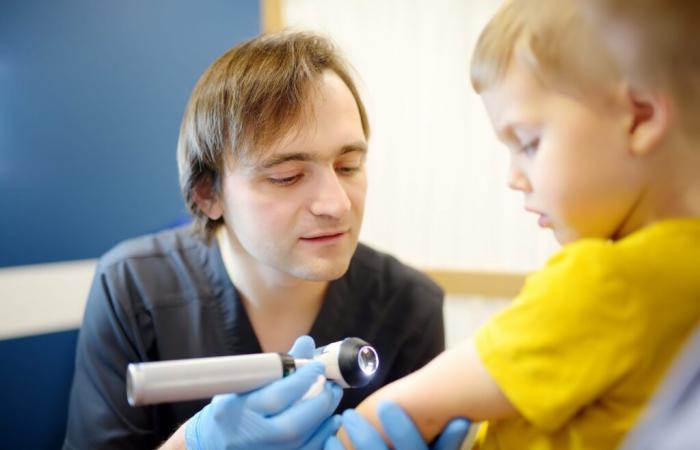Ronnie Hood, an 11-year-old boy living in Sudbury, England, began experiencing neck pain in the summer of 2023. He enjoyed playing video games, and his doctor blamed the pain on too much time spent playing video games. the screens. However, despite the prescribed physiotherapy sessions, the pain persisted and got worsebecoming unbearable, explains The Sun.
Ronnie’s parents, Vicky and Nick Hood, insisted that their son had an MRI scan. The diagnosis was a real shock: Ronnie suffered from an infiltrating brainstem gliomaa rare and aggressive tumor.
A late diagnosis with dramatic consequences
Infiltrative brainstem glioma, often compared to an octopus because of its shape, is an incurable cancerous tumor that grows rapidly. The prognosis is poor, with an average life expectancy of nine months after diagnosis. Treatment options are limited, and most of them are not available in the UK.
Ronnie’s family is devastated by this late diagnosis. They believe that if doctors had taken their son’s symptoms seriously earlier, they could have benefited from earlier and potentially more effective treatment.
A hope abroad
However, all hope is not lost. An experimental drug called ONC201, currently being tested in the United States,
showed promising results in treating the type of tumor Ronnie suffers from. The family launched a crowdfunding campaign on GoFundMe to raise the funds needed to travel to the United States and pay for this private treatment.
The initial target of £50,000 (approximately €58,500) is almost reached, thanks to the generosity of many people touched by Ronnie’s story. Family hopes to raise enough money to give Ronnie a chance to fight against this terrible disease.
A necessary awareness
This tragic story highlights the importance of early diagnosis of brain tumors in children.
Symptoms can be vague and easily confused with other health problemshighlighting the need for doctors to be vigilant and perform thorough examinations when symptoms persist.
The Hood family hopes their experience will raise awareness about childhood brain tumors and will encourage parents to trust their instincts and insist on getting a second medical opinion if necessary.






